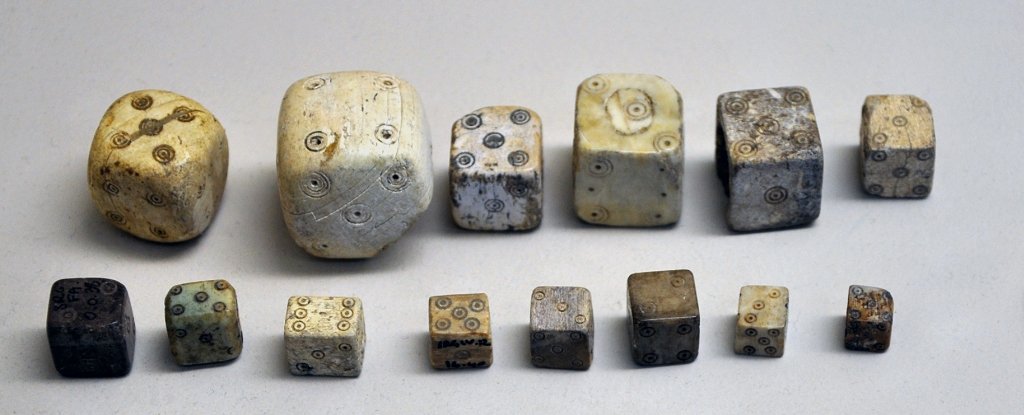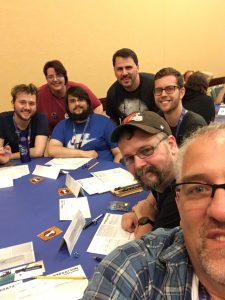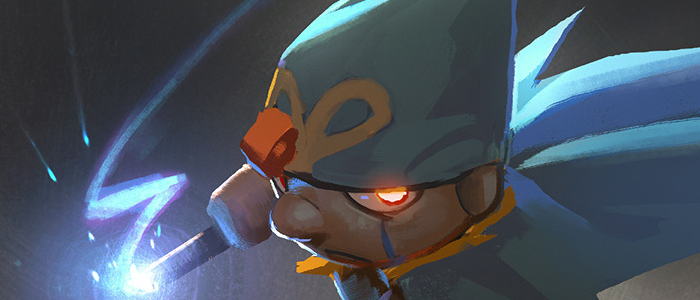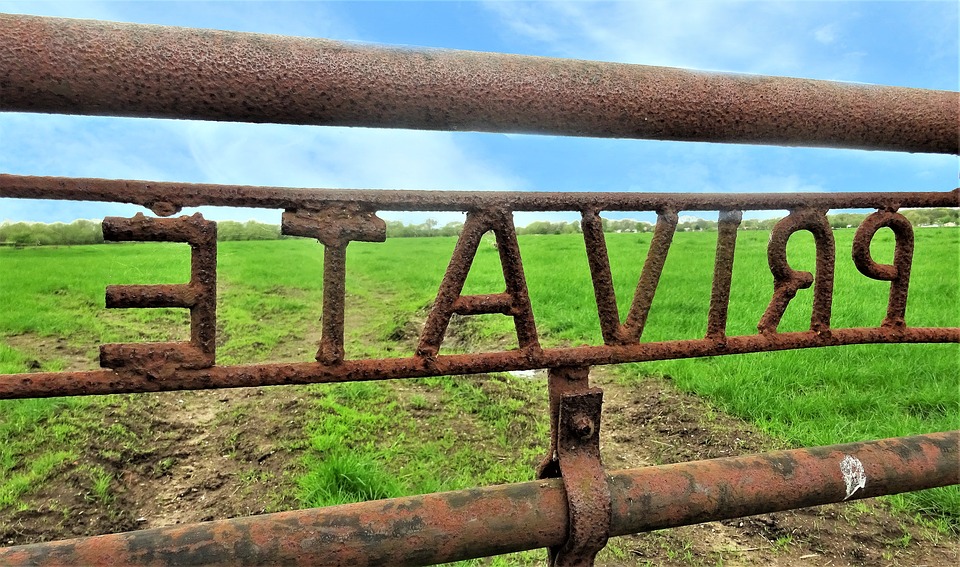We are rapidly approaching several large conventions (although there are large conventions all year long) so I thought we’d talk about gaming with new to you players and GMs. Some of these may feel a little harsh, but as someone who’s run a fair number of convention games, these are situations I have encountered and want to save both players and GMs some hassle while trying to game with dozens to hundreds of other players in the same room.
Introductions and getting started
Have your gear ready to go, check your event’s listing for things to bring – at minimum you’re probably going to need a set of dice, a pencil, and your event ticket. Your event ticket is incredibly important and you should give to your GM so they can get an accurate attendance – at conventions like GenCon, these returned tickets help the convention allocate space, if you don’t turn in your ticket the sponsoring company doesn’t get credit for you being at the table (or seminar or whatever).
If you are playing your own PC in an event, have a legible and clean copy as well as any supporting documentation or books – this is a must for playing PFS.
Wait to ask questions until everyone is present so the GM doesn’t have to cover the same information multiple times. But do tell the GM privately if you have to leave early so they aren’t caught unaware and have a Plan B for running your PC – try to limit this behavior since many adventures end on a high note battle and the party will probably need your help to be victorious.
Most GMs will go around the table for a quick round of introductions, keep yours short and sweet. Convention games have a limited time window to play, usually 4-5 hours, everyone’s there to play the game in front of them, not to hear about how your PC won the day in their last adventure.
During the adventure
Speak loudly enough to be heard – most convention gaming takes place in large rooms with several tables (the smallest room I’ve even been in had 8 full tables). The person sitting closest to you might not even be gaming at the same table as you, so do your best to speak clearly when you do talk and don’t try to carry on side conversations unless absolutely necessary, it can be disruptive.
If there is a rules question at the table, please let the GM field it. Unless it is a simple, straightforward question or the GM specifically asks for an assist, the GM may have a different interpretation of the rule or may be using a streamlined version for ease of play. Also, do not argue rules with the GM, they are there to run the game, not you. If they aren’t running the table the way you think it should be run, offer to run it next convention and do it your way.
Pay attention what’s going on during play – put your cell phone down. You’ve probably paid money to sit in on this game and unless you’re having a family emergency (which admittedly one of my family members was emergently hospitalized at home during GenCon last year, so it does happen) there’s nothing going on on your phone that can’t wait until a restroom break or the end of game. Think of this like going to the theater…only the actors are all within arms-reach.
Be ready with your action – sure sometimes you have to check rules to clarify your action, but don’t wait to crack the book until you should be declaring your actions and rolling dice, 4 hours goes really fast and it’s a sad day when the GM has to narrate the big boss fight at the end.
Be courteous to the other players at the table and share the spotlight – they have also paid money to play this game, this isn’t the time to hog the spotlight. Be generous with the adventure and give everyone the opportunity to shine.
After game wraps
Conventions often time book games one after the other, so if your group isn’t finished with the game but their time is up, it’s time to pack up and move on. Also keep in mind that GMs are just as heavily scheduled as you are and may have somewhere they need to be in the next time slot. Please do not try to tell them about how your PC saved the day in the last adventure unless they specifically invite you to do so. Your GM may only have 10 minutes to go to the restroom, grab some food, and run half a mile to their next event. Unless you’re prepared to help clear the table or go buy them food to alleviate their run to their next table, thank them sincerely for the game and bid them a fond farewell. If you see them later on in the con, wave and smile, it’s nice to be remembered for running a fun game.
If you have a really bad experience, privately express your concerns with the event runner – unless the event was organized by the GM themselves, there’s probably a publisher or sponsor for the event. Have your concerns organized and concise, conventions are very chaotic but a good organizer is going to take your concerns seriously, they want you to have fun. Your best option is to touch base with the organizer, let them know you have a concern and ask for a business card so you can get in touch with them after the convention. The only exception to this is if there is a real safety/health risk (like real weapons in play, threats of physical violence from anyone at the table), in which case contact the organizer or security immediately, while I have never experienced this, we live in a strange new world and I can’t predict what you might encounter, so be safe.
Finally, have a good time and remember that every one plays the same game you play a little differently. There may be “better” ways to run a game, but there are very few “wrong” ways to run a table, so chalk new things up as “new things learned” and move on to your next adventure with your grace, stealth, or battle prowess ready to go.









